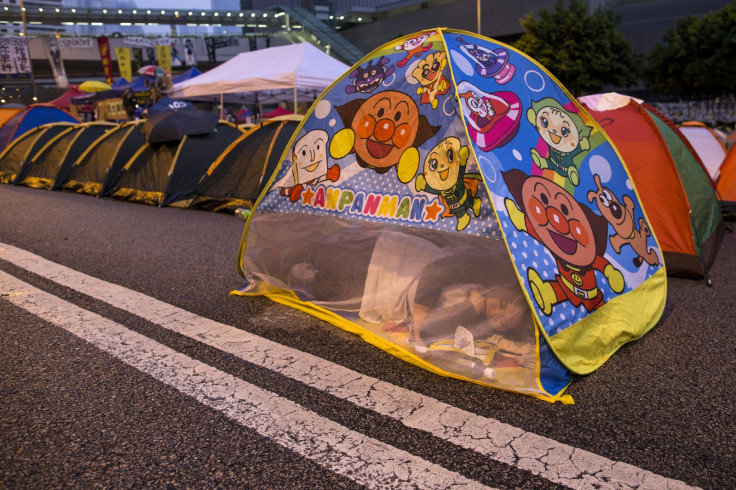Hong Kong: Police Use Pepper Spray on Pro-Democracy Protesters

Police in Hong Kong used pepper spray on pro-democracy Occupy demonstrators gathered in the city's streets early on Thursday.
The crowds protesting against police violence erected barricades to block the thoroughfare on Lung Wo road, forcing police to arrest 45 people and clear the road, reports Reuters.
As dozens queued to lodge complaints over the beating of a protestor in Wan Chai district, the government insisted that police involved would be suspended.
Footage of the beating had led to renewed protests following three weeks of demonstrations.
Ken Tsang Kin-chiu, a member of the pro-democracy Civic Party, who was beaten up by police was taken to hospital, and activists released photographs showing bruises on his face and body.
"He was handcuffed already, he was not able to resist but still he was beaten," Maggie Yuen, one of the protesters, told AP.
"I don't see any explanation other than that the police abuse their authority."
The protests have been largely aimed at the Chinese decision to screen candidates who will stand in the region's first direct elections in 2017.
The demonstrators also want chief executive Leung Chan-ying, hand-picked by Beijing, to resign.
While the numbers of protestors have dwindled from 100,000 since the early days, students have kept the campaign going.
Police action against the largely peaceful demonstrators has invited widespread public condemnation.
Meanwhile China's central government is becoming increasingly impatient, with the demonstrations seen as a challenge to the authority of Beijing, which took control of the former British colony in 1997.
It is believed that China's ruling Communist Party will give no ground because it wants to avoid setting a precedent for reform on the mainland.
However direct involvement by Beijing is being ruled out for now.
© Copyright IBTimes 2025. All rights reserved.





















